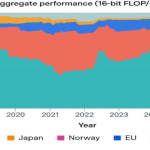![]()
(Photo Chip Somodevilla)
Occasionally, by happy accident, the left tells the truth.
A New York Times (NYT) opinion column got it half-right in its coverage of the Oval Office meeting between South African President Cyril Ramaphosa and President Donald Trump. “Trump Didn’t Want a Deal in the Oval Office. He Wanted a Humiliation,” reads a headline of the article by opinion columnist Lydia Polgreen.
Trump certainly humiliated Ramaphosa. The South African leader appeared bewildered when confronted with video evidence of racist rhetoric directed towards white Afrikaners, an ethnic group descended from Dutch settlers who have occupied South Africa for over three-hundred-fifty years. Trump also presented Ramaphosa with printed news articles he said highlighted the murders of Afrikaners.
“These articles over the last few days — death of people, death, death, horrible death,” Trump said as he flipped through the pages.
The NYT column dismissed Trump’s action as “waving around fake evidence of a fake problem.” It characterized the claim of targeted racial violence against Afrikaners as a “racist fantasy of white South Africans suffering genocide at the hands of a Black majority.” This is an unsurprising interpretation from a legacy media columnist. The NYT has published at least one column lambasting the Afrikaners’ refugee claim. One of their reporters even apparently contradicted himself in the space of a few sentences.
“A couple months ago, Ramaphosa signed a measure into law that allowed the government to take land without providing compensation to the owners,” said John Eligon, Johannesburg bureau chief for the outlet. In the same video, he went on to say Trump previously claimed “white farmers were having their land seized and that there were mass killings of white people, both of which were untrue.”
But even accepting this claim, someone with slightly more theory of mind might be able to conjure up a reason as to why Trump made such a spectacle of the meeting. Polgreen seems incapable of doing so, at least at a level which provides much insight.
“He wasn’t there to make a deal,” she writes. “He was there to make memes and score points with his most rabid fans.” Trump is a showman. Not even his most “rabid fans” would contest that. In fact, it’s probably fair to say it endears him to them. But he’s also proved himself a savvy politician and diplomat. He doesn’t humiliate foreign leaders just for kicks. He does it because he, more than anyone, is aware of the power of perception.
Trump’s meeting with Ramaphosa recalls an earlier Oval Office scuffle. Ukrainian President Volodymyr Zelenskyy got into a heated debate with Trump and Vice President J.D. Vance in late February.
“We’re trying to solve a problem, don’t tell us what we’re going to feel,” Trump told Zelenskyy. “You don’t have the cards right now. With us, you’ll have the cards. You’re playing cards. You’re gambling with a lot of lives and millions of people. You’re gambling with World War III.”
“Have you said thank you once?” Vance followed up.
Zelenskyy was shortly escorted from the White House. The New York Times hysterically described the encounter as “one of the darkest days for Ukraine since Russia’s invasion three years earlier.” Then, the United States signed a landmark minerals deal with Ukraine on April 30. As Trump said, he knows when he has the cards.
“I felt that I was sitting across [from] a President who has a lot of power and a lot of focus,” Ramaphosa said following the meeting. This is a characterization which crops up over and over again.
“On television, he is frightening,” Prime Minister Shigeru Ishiba of Japan said after meeting Trump in February, “But when I met him actually, he was very sincere and very powerful and with strong will for the United States and the entire world.” Trump is simply representing his nation as a president should. It may take some getting used to for the mainstream media. Joe Biden’s tenure as president certainly did not inspire such feelings in most Americans. One doubts foreign leaders thought Biden very powerful either.
BREAKING: President Trump has released the following statement on Shinzo Abe’s assassination pic.twitter.com/a1j6AySOgT
— Daily Caller (@DailyCaller) July 8, 2022
Trump isn’t always so forceful in his diplomacy. He maintains warm relations with President Nayib Bukele of El Salvador. He appeared to have a genuine friendship with former Prime Minister of Japan, Shinzo Abe, who was tragically assassinated in 2022. The left is critical of Trump for “cozying up” to foreign leaders like Russian President Vladimir Putin or North Korean dictator Kim Jong Un. They mistake diplomatic strategy for obsequity. An ironic accusation, given the left’s embarrassing displays of prostration to Ukraine. There’s a lesson for conservatives in the mainstream media’s stubborn refusal, or inability, to understand their political enemies. Even if you think someone evil, don’t assume they’re without tangible motivations. To love your enemy, and to defeat him, one must know him well.











